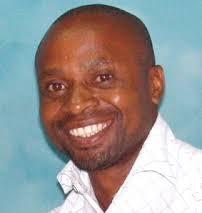Zimbabwe: Observations from Harare about a book on land by Blessing-Miles Tendi

I have made two research trips to Zimbabwe in the last 5 months. On both trips the subject matter of the recently launched book Zimbabwe’s Land Reform: Myths and Realities (by Ian Scoones, Nelson Marongwe, Blasion Mavedzenge, Jacob Mahenehene, Felix Murimbarimba and Chrispen Sukume) arose during my discussions with various senior members from President Robert Mugabe’s Zimbabwe African National Union Patriotic Front (ZANU PF), generals in the Zimbabwe Defence Forces (ZDF) and nationalist public intellectuals aligned with ZANU PF.
The book’s title easily gives away its contents. This is a book about land reform. You might deduce therefore that my discussions about Zimbabwe’s Land Reform: Myths and Realities were because I am a researcher on land reform issues. And yet I am not an expert in land reform. Nor were any of my interviewees in Zimbabwe over the past 5 months experts in the field either or indeed even ministers of land and agriculture. Why then would these ZANU PF politicians, military men and public intellectuals be aware of this publication? Why is it in their personal libraries and lying on their government office desks, in the process of being read? The answer is twofold.
The first explanation is a point I have laboured to make about ZANU PF for some time now. It is that for all the seeming “madness”, which often comes across in popular representations of ZANU PF, the party contains some quite sophisticated and well read figures. There is calculated method in the “madness”. There is concern for ideas in ZANU PF.
Second, my discussions about Zimbabwe’s Land Reform: Myths and Realities underline the enduring centrality of land to Zimbabwean politics. Land was an important theme in the nationalist struggle that culminated in the independence of 1980, but which left the problem of racially biased land reform unresolved. The Patriotic Front (PF) felt that it was forced to accept an undesirable settlement at the 1979 Lancaster House independence talks, and this was developed by ZANU PF as a key point of grievance when articulating a narrative called Patriotic History, which legitimises the Third Chimurenga or revolutionary land seizures that began in 2000.
Years after the Third Chimurenga’s completion and with Zimbabwe now in the thralls of the “Last Chimurenga”, which, according to ZANU PF’s Jonathan Moyo, is aimed at “the transformation of the ownership of the majority equity in the national economy through indigenisation”, land continues to be a deeply politicised and hotly contested subject.
ZANU PF politicians have glowing praise for a book they regard as presenting a counter narrative to pervasive representations of Zimbabwe’s land reform as all doom and gloom. Indeed Scoones et al state explicitly that their research in Zimbabwe’s Masvingo province sought to challenge myths such as:
(a) The beneficiaries of land reform are ZANU PF “˜cronies’.
(b) New resettlements have not experienced investment.
(c) Agriculture is a total shambles, which is causing chronic food insecurity.
(d) Zimbabwe’s rural economy has broken down.
“It is fantastic Scoones is white and from Sussex. The British cannot attack him for bias. He is one of them. Cracks are emerging in British imperialist citadels”, concluded one ZANU PF politician.
Writing his weekly column for the government controlled the Sunday Mail, nationalist public intellectual Tafataona Mahoso lambasted the 17 February 2011 edition of Zimbabwe’s privately owned Financial Gazette newspaper for “tucking an important story at Page 15 which should have qualified for top page treatment. The story was entitled “˜Land reform not complete disaster’. It was based on reports of a study by Professor Ian Scoones of the Institute of Development Studies at Sussex University in the UK which concluded that Zimbabwe’s African land reclamation and redistribution is popular, largely successful (despite illegal sanctions imposed on the country) and clearly beneficial to the once dispossessed and impoverished African majority”.
Never mind that Scoones et al are critical of the violence that accompanied land reform and the corrupt redistribution of some commercial farms. Never mind that many land beneficiaries are quoted in the book as critical of the ZANU PF government’s failure to render adequate support in terms of farming inputs. Never mind the book’s shortcomings such as some generalisations and lack of an adequate treatment of the role of gender during and after land reform.
On the Movement for Democratic Change (MDC) side of Zimbabwe’s power-sharing government and in civil society, which is largely oppositional to ZANU PF, Zimbabwe’s Land Reform: Myths and Realities has been met with deafening silence, in public at least. The MDC and some quarters of civil society are not as concerned with ideas as much as ZANU PF. Moreover the book does not fit the MDC’s narrative that land reform was an irrational ZANU PF policy that proved to be an unmitigated disaster.
The conflicting receptions of Zimbabwe’s Land Reform: Myths and Realities highlight the extremely polarised nature of Zimbabwean politics and the country’s public intellectual community. The polarity will make it extremely difficult for the book’s complete message to be heard for some time yet. More so as the country’s 2 year old power-sharing arrangement is fast unravelling and the longstanding “with us or against us” political schism becomes deepened ahead of impending general elections.







[…] https://africanarguments.org/2011/06/03/observations-from-harare-about-a-book-on-land-by-blessing-mil… Share this:TwitterFacebookLike this:LikeBe the first to like this post. […]
[…] https://africanarguments.org/2011/06/03/observations-from-harare-about-a-book-on-land-by-blessing-mil… Share this:TwitterFacebookLike this:LikeBe the first to like this post. […]